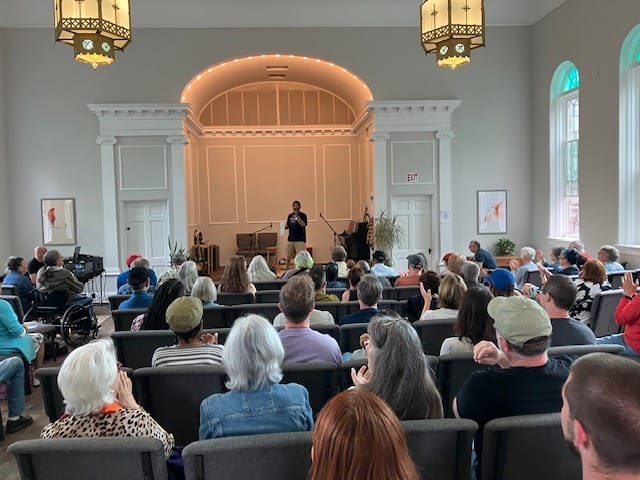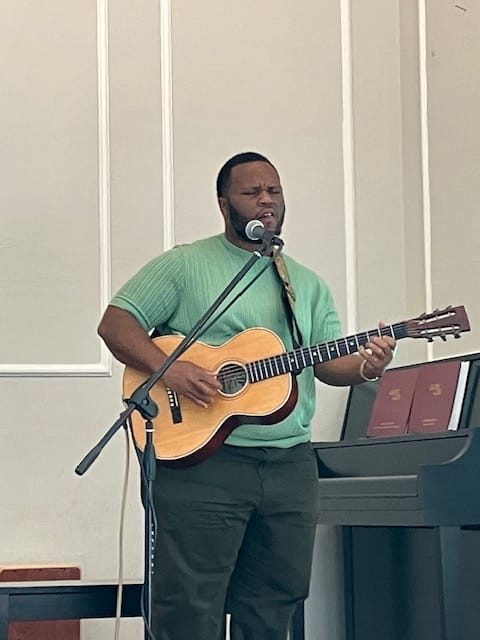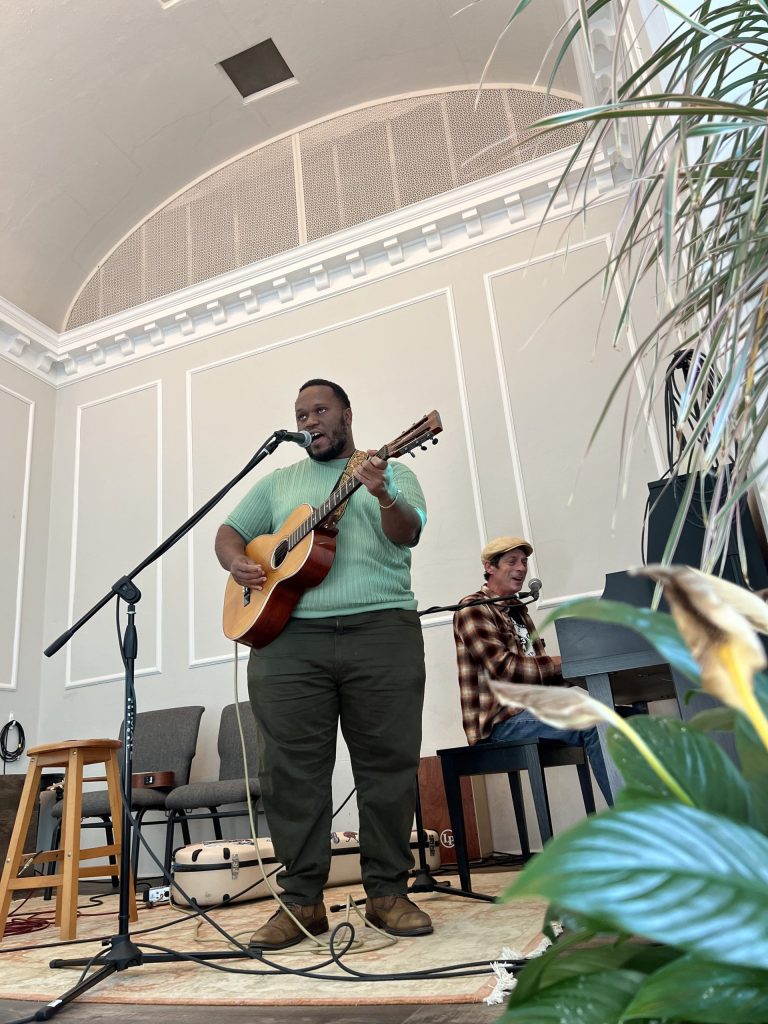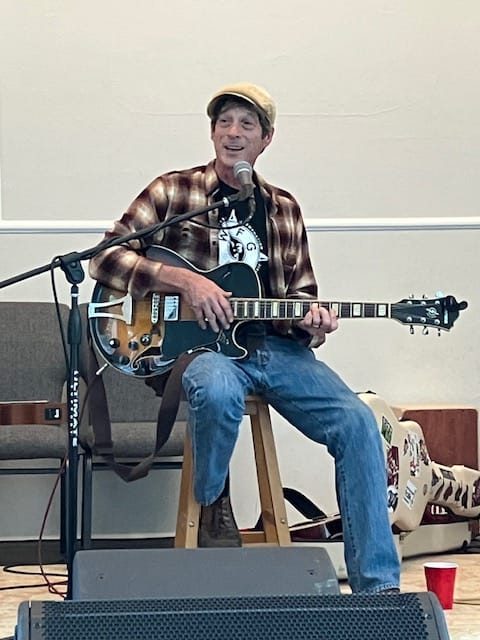By Robert M. Sarwark

The view from the audience
On Sunday, May 4, Atlanta’s progressive community radio station, WRFG 89.3 FM (“Radio Free Georgia”), hosted a concert at Ormewood Park’s Ormewood Church Sanctuary billed as “An Afternoon of Georgia Blues.” Without a doubt, this is exactly what the audience got, and then some.
Opening the sold-out show amid gorgeous spring weather was local blues stalwart and Decatur resident Danny “Mudcat” Dudeck. Mudcat, according to the Atlanta History Center, is “an internationally known gospel and bluesman continuing the traditions of the early blues pioneers while adding his own Mudcat edge, resulting in one of Atlanta’s greatest treasures.” He is perhaps best known for his long-standing Wednesday-night residence at Fat Matt’s Rib Shack on Piedmont Avenue, as well as past stints at Northside Tavern on Howell Mill Road.

Jontavious Willis
Mudcat began his lively solo set with two songs on the ukulele, perhaps an unexpected choice for blues music, but one that he very deftly put to use along with his strong gospel-tinged vocals. When Mudcat switched to electric guitar, his skillful Piedmont fingerpicking style, along with a powerful pinky slide, came into full effect.
Mudcat, along with his backing band, The Redeemers, will perform at the Avon Theater on May 31 in celebration of his fifteenth album, the EP Rock & Roll Redemption.
Headliner and award-winning recording artist Jontavious Willis, who hails from Meriwether County, Georgia (about 65 miles southwest of Atlanta), began his solo set soon after. The young singer and guitarist may not yet have reached the age of thirty, but his stage presence and talent were that of a performer perhaps twice his age. Willis’ most recent album, West Georgia Blues, was released in 2024 on Strolling Bones Records.

Like Mudcat, Willis is a master of the Piedmont fingerpicking style (though Willis performed exclusively on acoustic guitar). Willis also displayed his vocal prowess on classic songs like the now more than one-hundred-year-old “The Atlanta Blues,” as well as several originals. These included “Long Winded Woman,” “Charlie Brown Blues,” and “Ghost Woman,” a plaintive ballad anchored on a gorgeous chiming riff that Willis finger-hammered with the keening persistence of a freight train.
Speaking of trains, it could be reasonably argued that the blues originated with the railroad in the 19th century — both the sound and rhythm of the locomotive inspired a new style of African-American folk music. (The great contemporary pianist, composer, and bandleader Jon Batiste makes this compelling thesis in a recent video you can find online.) The idea is that world-changing technologies often make their way deep into the human psyche, into both our hearts and our arts, as it were. And while plenty of white folks and others have tried their hands and even excelled at the blues, the genre is and always will be Black music, in essence an expression of the Black American experience. It was of course a predominantly rural phenomenon at first, and then, with the Great Migration starting in the 1920s, an urban one as well.

It was fitting, then, that Mudcat and Jontavious Willis joined forces for a final song together at “An Afternoon of Georgia Blues.” Mudcat sat at the sanctuary’s upright piano and added harmony vocals while Willis played guitar and sang melody on the gospel standard “Glory, Glory Hallelujah.” One man hailed from the city, the other from the country. One is white, the other Black. One middle-aged, the other young enough to be his son. Both are committed and accomplished bluesmen. And though the train doesn’t loom as large over us as it once did, the spirit of that haunting, mechanical, yet somehow organic rhythm united both performers and their rapt audience through the soulful sounds of the blues.
Proceeds from the concert went to Radio Free Georgia at 89.3 FM to support its blues and country programming. While a strong supporter of public radio, it receives no federal funds.





